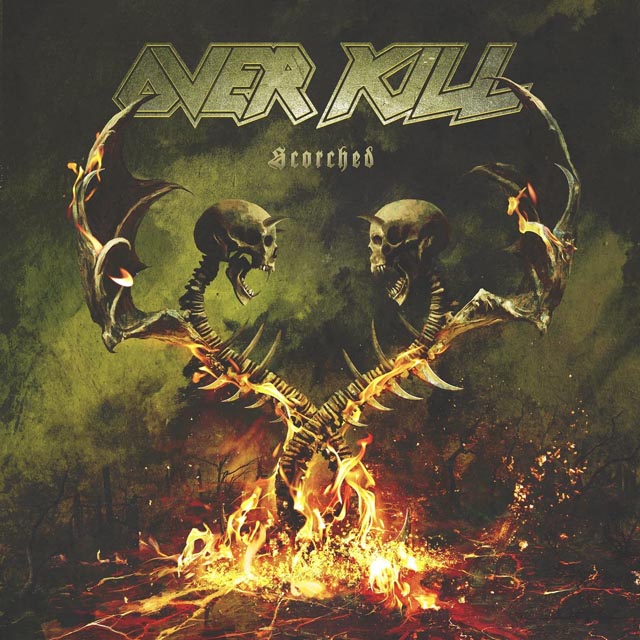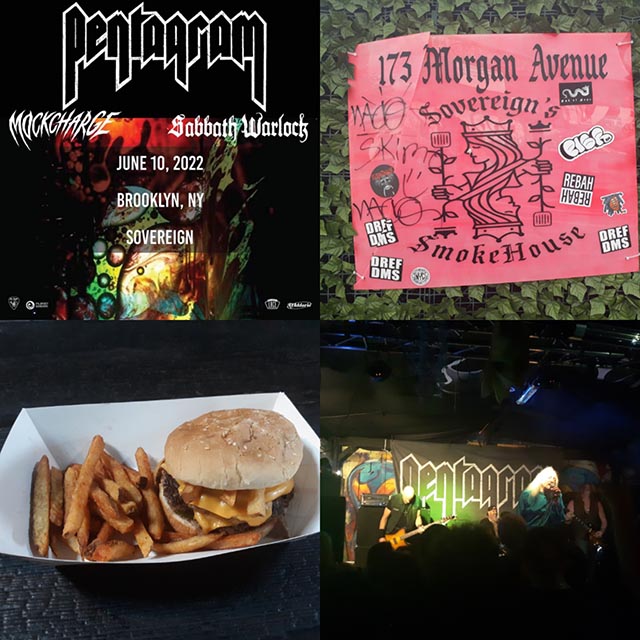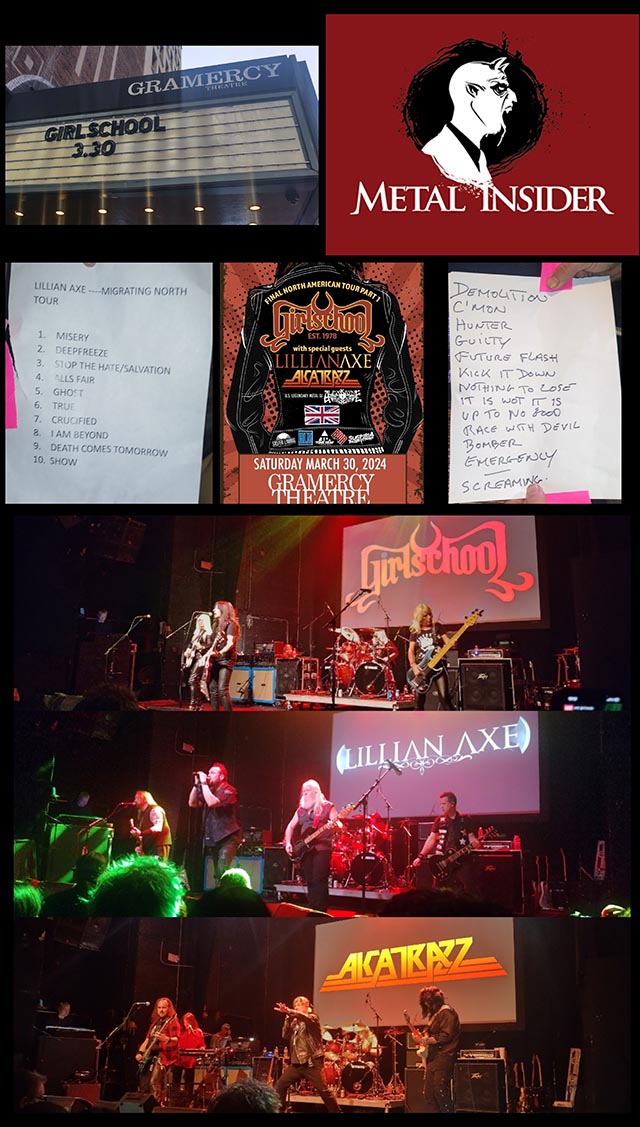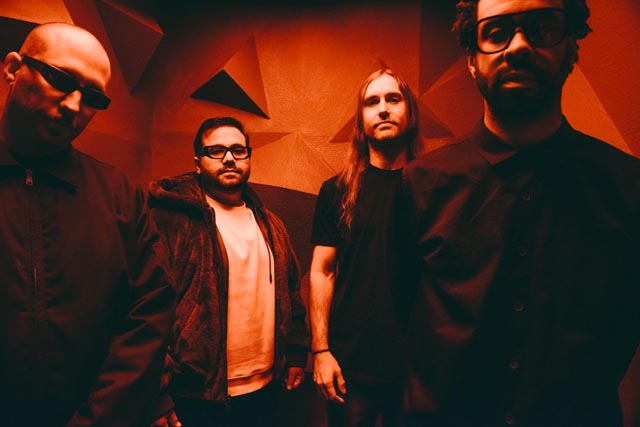
The year is 1983. I am working at the notorious heavy metal nightclub in Brooklyn, New York, named L’Amour. I was the club’s original metal DJ. It’s a very crowded weekend, and I am up in the DJ booth, laying down fresh tracks from some of the earliest metal bands in existence. Tygers of Pan Tang, Budgie, Rock Goddess, Girlschool, Motörhead, Anvil, mixing it all up between heavy and NWOBHM, from Venom to Maiden to Nasty Savage and beyond. One particular night, a young stranger named Bobby Gustafson walked into the DJ booth holding a cassette. No case, no printing or markings on it.
Bobby: “Hey man, can you play this tape of my band?”
Me: “Let me listen to it first.”
Now at this point, Bobby probably thinks I’m a jerk-off. “Let me listen to it first.” Prick! What I didn’t explain to Bobby was that the cassette deck mounted in the L’Amour sound rack was a one-headed cheap piece of garbage that sounded like dog shit mixed with hog sweat, gravel, and wet cement over the club’s system compared to the crystal clear vinyl that was blaring out of the floor-to-ceiling perfectly tuned speakers in each corner of the room. The difference in sound was glaring, so I had to listen to cassettes first to ensure the sound quality was good enough. Most bands recorded their stuff on boom boxes back then. Also, the crappy quality of the tape deck gave me a good excuse NOT to play bands I didn’t like. So I didn’t play a lot of cassettes. There are, however, rare exceptions.
He hands me the cassette; I put the tape in the deck and pull on my headphones. The opening notes of “OVERKILL” hit me like a steamroller. This brand new mix of Ramones, Sabbath, Sex Pistols, Kiss, and Motörhead all smashed together. I loved it! The studio recording quality sounded good over the speakers with a very light touch of EQ. I played the entire first side for the crowd, announcing over the mic something like, “You heard it here at L’Amour – This is Overkill!” There was a live band coming on the stage to play. After they finished their set, Bobby came back up into the booth with the cassette again, and I played all of side two. This was the cassette that would become “Power In Black.” Bobby and I have been friends ever since.
This was arguably the first time ever that Overkill was heard by a significantly large crowd of about 1500 to 2000 people. That was forty years ago. You know the cliché, the more things change, the more they stay the same. Overkill is still a steamroller of a band.
After nineteen albums and numerous romps worldwide, through several lineup changes, the covid lockdown, etc., Overkill, particularly its principles D.D Verni and Bobby “Blitz” Ellsworth, never threw in the towel. This is partly because they are serious musicians who set out to live their lives this way from day one – and as deadly serious as that first killer cassette sounded to me.
Their twentieth studio album, Scorched, assaults you like a baseball bat (that is Jersey style, isn’t it?). From the opening guitar triad arpeggio, you know a slamming salvo of thunderous chords will be coming to answer it. And they do. “We’re back!” The track seems to telegraph. The chords morph into a rumbling, fiery combustion engine about to spit out its pistons as Jason Bittner strategically slams all of his accents into the right places. The track takes off – the terrifying green monster is full-throttle, leading us into a breakdown that is so mosh pit worthy you’ll find it hard not to “lace ‘em up tight” and dive in. Blistering guitars lead the charge directly into the smart turnaround. With its machine-gun-like ending, Scorched leads us straight into the hellish maelstrom, one of Overkill’s most concise, fierce, and frighteningly confident albums of their entire catalogue.
Wailing siren-like guitars and an obnoxious cymbal slam start “Going Home” with a growling rumble and some frantic chugging way over the thrash speed limit. Blitz’s vocals exhibit a steel sheen edge as he darts between life lessons and dire warnings. The band’s deep backing vocals starkly contrast with Blitz’s higher-end call-and-answers, and it works like a charm. The breakneck lead section will give you whiplash if you don’t already have it from the opening track.
After a count-in by Jason, “The Surgeon” shows off master songwriter D.D. Verni’s bass prowess and how he gets underneath a track and pulls it along. Jason Bittner has a concentrated red energy about him that perfectly melds into the Overkill cauldron. He is a thunderous master of the drum kit and plays like he’s demolishing an apartment complex with a sledgehammer. He and D.D. are the high-powered, supercharged crankshaft that drives the big green wrecking machine.
I spoke to DD Verni in a recent interview with me on my radio show “The Slaughterhouse,” and he had this to say about the Scorched album:
“I think on this record, there is a fair amount of metal as opposed to thrash. It’s kind of a mix. When you start writing parts like that and doing it, it can be a little bit more musical. When things are a little bit more musical, then they could be orchestrated a little bit more as far as parts go. That’s when everybody can play a little bit more. Sometimes if you’re at 200, 210 beats per minute and you’re playing a riff, there’s just not a lot of room to do anything besides the riff.”
It’s true. The weaving the band does between the metal stomps and chugs and the nimble yet accelerated thrash riffs and grooves within the arrangement of this album is indeed extremely well thought out, and the changes all make perfect sense in relation to each other within all the tracks.
Dave Linsk and Derek Tailer’s guitar musicianship on display is superb, top-notch, right out front and in your face. Their harmonic tones, pitch, and feverish pace move from head-breaking slow-motion riffs to greased lightning urgency in the blink of an eye. “Scorched” is as close as you can get to a studio album sounding live, given the raw power these two guitarists can harness and the band’s sound overall.
Blitz gets higher on “Twist of the Wick” and lends the track more dimension. “Wicked Place” is a forward marching double-bass rambler that will have you immediately stomping around your house. Metal cadences abound on the old-school sounding “Won’t Be Coming Back,” and “Fever” opens gloomily, full of foreshadowing. Blitz does a bit smoother, liquid vocal here – a nice departure, though it doesn’t last very long when the time comes to drive the track home. A few time changes take us to a spiraling lead that glistens and screams. “Harder They Fall” punches you right in the gut with a mean metal riff and some dazzling footwork by Jason. “Know Her Name” jumps off in full Overkill traditional metal mode with an interesting driving rhythm, and Blitz jumps in to tell us the story. D.D. pulls ahead in a crawling bass riff that falls into a down-and-dirty breakdown for the track’s bridge. Blitz finishes it with a signature scream, and of course, Linsk and Tailer are there to set fire to it all. “Bag O’ Bones” is a fun ditty that starts with some bullet-like riffing, a macabre dancing skeleton anthem.
I have been playing Overkill records in front of thousands of people since 1983. It is a distinct honor. I say “Scorched” is one of their best. Trust me; you will not be disappointed.
Forty years later and now twenty albums in, Overkill has nothing to prove to anyone. But they do it anyway – because they are the real thing, and their life mission is very much alive. They are about to embark on yet another yearlong world tour, complete with an irreverent attitude: “We don’t care what you say, fuck you!”
Overkill continues cranking out beautiful and dangerous thrash metal, having the balls to never really stray from playing the music they want to play and saying what they want to say, having the sacred musical ability and the technically honed craft to execute it all over the world, filling everyone who hears and sees their shows with unforgettable joy along the way. The band shows no signs of stopping.
DD Verni: “So, I think this is our 20th studio record. I think my heroes Motörhead have 23 studio records. So I was like, Well, we got to do at least three more… something to work towards, where my heroes are.”
The steamroller keeps on rolling.
Written by DJ ALEX KAYNE © 2023 World Rights Reserved












